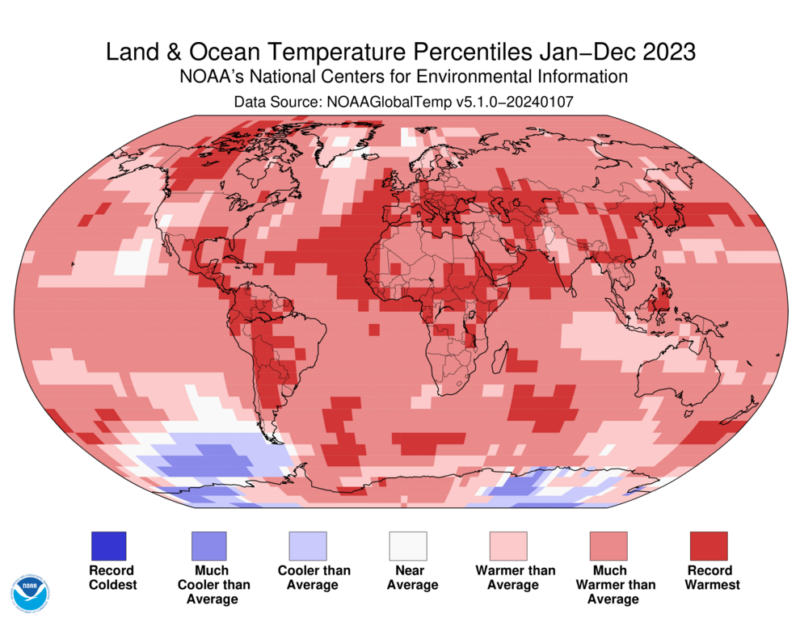NASA scientist on 2023 temperatures: “We’re frankly astonished.”

Enlarge / Warming in 2023 was widespread. (credit: NOAA NCEI)
Earlier this week, the European Union’s Earth science team came out with its analysis of 2023’s global temperatures, finding it was the warmest year on record to date. In an era of global warming, that’s not especially surprising. What was unusual was how 2023 set its record—every month from June on coming in far above any equivalent month in the past—and the size of the gap between 2023 and any previous year on record.
The Copernicus dataset used for that analysis isn’t the only one of the sort, and on Friday, Berkeley Earth, NASA, and the National Oceanic and Atmospheric Administration all released equivalent reports. And all of them largely agree with the EU’s: 2023 was a record, and an unusual one at that. So unusual that NASA’s chief climate scientist, Gavin Schmidt, introduced his look at 2023 by saying, “We’re frankly astonished.”
Despite the overlaps with the earlier analysis, each of the three new ones adds some details that flesh out what made last year so unusual.




